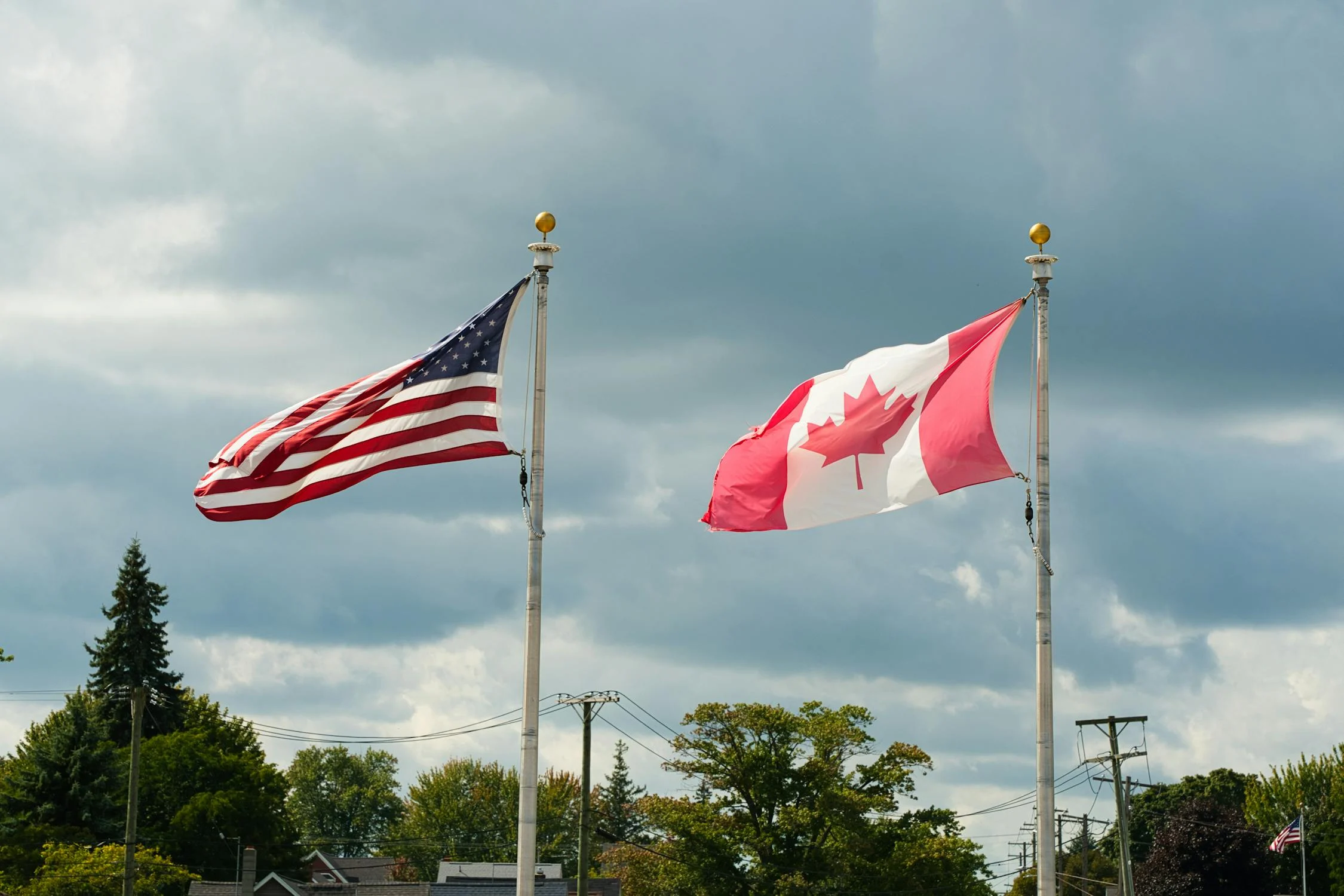When I taught a course at York University on Canadian culture, my first year students would claim that Canada wasn’t different from America. So, I’d tell them the joke about Canadians and Americans that was making the rounds when America invaded Iraq in 2003.
An American border guard stopped a man with a dual citizenship passport to ask about his nationality. The man explained that he was a citizen of Canada and the US. “You can’t be both,” the border guard insisted. “Which one are you? American or Canadian?” The man repeated that he was a citizen of both countries.
The border guard grew increasingly frustrated. Finally, he had an idea. “If your country went to war, what would you do?” the guard asked. The man replied: “It depends on the war, and what it was about.” The guard was thrilled. “I knew it,” he said. “You’re Canadian.”
The border guard had a point. Canadians are skeptics and Americans tend to be well, more gullible. You could say our cultural differences divide us into scoffers and doubters versus dogmatists and true believers.
When George W. Bush wanted Canada to join the American war on Iraq, Jean Chrétien, our Canadian Prime Minister then, said he wasn’t sending Canadian troops into combat because he didn’t believe Iraq was hiding weapons of mass destruction. Many Canadians didn’t believe it either. And as everyone knows now, it turns out there weren’t.
Most Canadians I know admire America’s entrepreneurial spirit and enjoy American music, their books and films and television. Some Canadians like me even have Yankee ancestors who came over on pilgrim ships. But we’re far too skeptical to take Americans as seriously as Americans take themselves.
Consider the hype about American exceptionalism.
Get over yourselves, we tell each other when you’re not listening. How can America be exceptional when the cost of its healthcare system per capita is higher than anywhere else in the world? And yet American life expectancy, according to the World Bank, had a global ranking of 49th in 2022, and Canada’s life expectancy ranks 20th after Israel, the Cayman Islands and Iceland.
Canada has universal healthcare, and we’re proud it’s a human right.
That means we don’t shoot health insurance executives down on the street over our medical bills. Nor is health care our number one cause of bankruptcy, which is the case for American families, according to the American Bankruptcy Institute.
Unlike America’s underfunded public education system, ours isn’t tax based. That may be why Canada’s public education system ranks sixth in the world, according to U.S. News and World Report, while America’s is thirteenth.
Then there are America’s ultra-liberal gun laws, its mass shootings and abortion bans.
In Canada, abortion is a legal medical procedure but in the US, nineteen states ban abortion or restrict the procedure earlier in pregnancy than the standard set by Roe v. Wade overturned by the US Supreme Court in 2022. As for mass shootings, more than 488 took place across the US in 2024, according to the Gun Violence Archive. According to CNN, last year in the US saw eighty-three school shootings. Twenty-seven were on college campuses and fifty-six were in schools with kindergarten to grade twelve.
The American dream isn’t doing so well these days either. The World Economic Forum puts Denmark in first place for upward mobility. Canada is number six, and the US is a laggardly 27th. Fast-rising wealth inequality is higher in the United States than in almost any other developed country.
We’ve often heard the American homily about George Washington admitting he cut down the cherry tree because he refused to tell a lie. Yet president-elect Donald Trump is a serial liar who falsely claims that Canada owes the US $200 billion a year in trade exports.
All of these questions lead us to ask another: when Trump muses about Canada becoming the 51st state, what’s in it for us? Lousy healthcare? Loss of reproductive rights? Unsafe schools?
So, may I suggest we leave the largest undefended border in the world intact? And while we’re at it, can we drop the 49th parallel and adopt a more equitable dividing line instead? Give us all of the Great Lakes along with upper state New York, Maine, New Hampshire and Vermont. We’ll also take Wisconsin, Pennsylvania and Minnesota too.
That’s fair, isn’t it? Because there’s one thing we’ve learned as your neighbour — if you don’t ask, you don’t get.
Article originally published on The Toronto Star – read on their website at https://www.thestar.com/opinion/contributors/how-do-you-tell-the-difference-between-an-american-and-a-canadian-depends-who-wants/article_cf4c766c-cf72-11ef-b9f0-6b4f53a2d7b6.html


